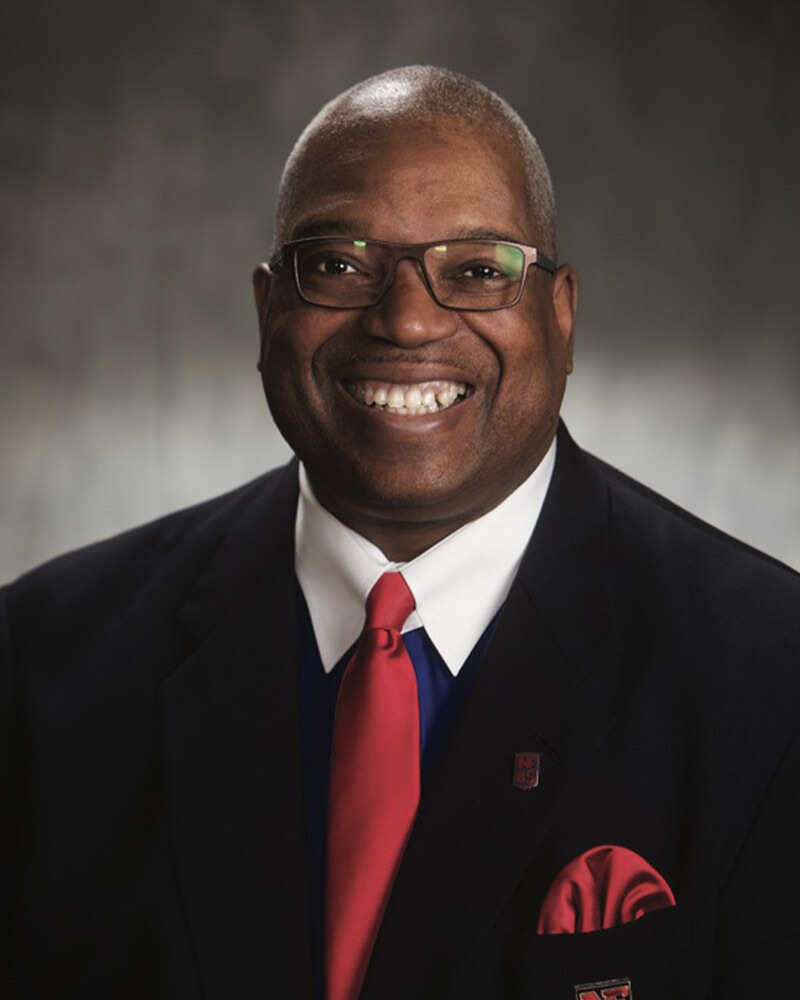Sport and Entertainment Management Q&A: Elliot Hopkins
 Mentorship from top professionals is one of the unique benefits offered by Trevecca’s new master’s degree in sport and entertainment management. One esteemed advisor and mentor for the program is B. Elliot Hopkins, who ranks among the most respected voices in high school athletics at the national level.
Mentorship from top professionals is one of the unique benefits offered by Trevecca’s new master’s degree in sport and entertainment management. One esteemed advisor and mentor for the program is B. Elliot Hopkins, who ranks among the most respected voices in high school athletics at the national level.
As director of sports, sanctioning and student services for the National Federation of State High School Associations (NFHS), Hopkins puts into practice a deep understanding of the oversight and management of sports programs and events. In the following conversation, he shares his perspectives on his career in sport management, the advantages of mentorship and advice for anyone considering this field of study.
Q: What’s a typical day like in your role at NFHS?
Hopkins: There are normally lots of emails to answer and phone calls to handle. When I’m in one of my two sports seasons, many people want an interpretation regarding a playing rule. If a new tactic or new technology is used at a higher level (college or professional), our phones ring off the hook from coaches, parents, officials and schools inquiring about whether they can purchase the new equipment, or asking how to coach and/or officiate the new tactic.
Q: What is one of the highlights of your career so far?
Hopkins: My hazing prevention work has been life-changing and one of the most rewarding aspects of my professional career. I’ve been fortunate to have given more than 300 hazing prevention presentations around the U.S. and Canada, and to help families and schools where an incident has occurred. I’ve had the opportunity to teach about how to heal, and how to guard districts against future hazing incidents. Those moments are the ones I remember because they directly affect everyone involved in the hazing event.
Q: What makes someone successful in this field?
Hopkins: Being a critical thinker, giving grace, being an active listener and working to get to “yes.” Anyone can say no, but if you’re willing and creative enough, you can get a positive outcome. Patience is very helpful as well. We deal with parents, coaches, school administrators, state association staff members and game officials daily. Each group wants something different, and directly or indirectly, their desires affect the other parties. I have a responsibility to mediate those desires and be an advocate for each group.
Anyone can say no, but if you’re willing and creative enough, you can get a positive outcome.
Q: What makes this type of career rewarding?
Hopkins: Minimizing risk for children so they can still enjoy their sports and activities is one of the biggest rewards in my job. I encounter many different people on a daily basis, and most of the exchanges are positive and congenial. That makes servant leadership enjoyable for me.
Q: What’s the career outlook for someone pursuing sport management?
Hopkins: It’s extremely bright, rewarding and promising! There are so many possibilities and career choices. Outside of professional organizations there are 1,100 colleges and 51 state high school associations, but there are also more than 20,000 high schools looking for good young men and women to take that next step in a leadership role. Ticket office work, advancement, game day activities, operations, security, fan engagement, player development and community enhancement are just some of the roles needed at all levels of sport.
Q: What do you see as the benefit of having a mentor, and what do you look forward to most about mentoring a graduate student?
Hopkins: A mentor can help you develop your goals and encourage you through adversity. We all need a coach and a non-judgmental advocate. My mentor, a professional coach, is an invaluable sounding board for me.
When I give back through mentorship, I see that as a testament to all those who helped me along in my career and still give me perspective.
When I give back through mentorship, I see that as a testament to all those who helped me along in my career and still give me perspective. I want to help a young person go after goals and achieve their highest level, understanding that the only limitation is the one they place on themselves. It will not be easy (nor should it be), but it will be rewarding and satisfying to realize the power that they possess.
Graduate school provides the playbook, and the individual has to select the right plays to execute a solid game plan. I want to be that assistant coach in their ear telling them that they can win the game with the plays they selected – or help them scrap those plays and come up with new ones.
Q: What advice would you have for someone who’s considering this area of study?
Hopkins: Get a stack of business cards with your name, cell number and email address printed on them and hand them out as you meet people along your journey. Ask for a card in return, then keep in touch quarterly to let them know about your experiences and to thank them for being on your team. Talk to as many people as possible in the field that you’re interested in. Search them out and ask them for advice, perspective and thoughts about what they do, how they do it and what they might do differently if they had a “do-over.” Each person will provide you a puzzle piece for you to take and complete your personal career puzzle.
I’d also say this: remember that you aren’t looking for someone to “give” you a job… you’re looking for them to give you an opportunity to earn the job.
